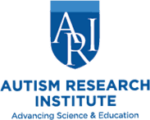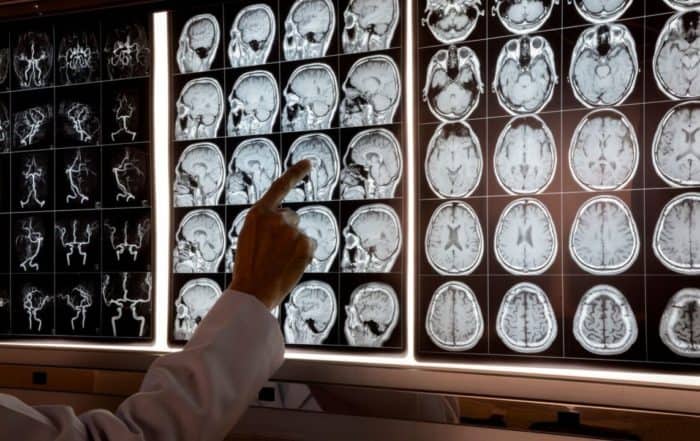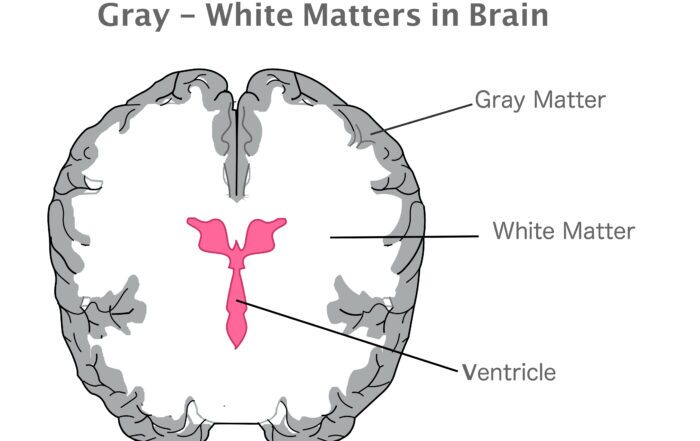Dr. Beversdorf discusses prenatal stress and its implication in autism etiology. He provides a brief history of autism heredity, epigenetics, and the role of serotonin. The speaker details current understandings of the association between prenatal stress and autism. Beversdorf discusses recent research on the impact of SERT, prenatal stress, and other epigenetic factors. Clinical studies are provided alongside rodent models. The speaker highlights options for future research before the Q&A.
No continuing education credits are offered but free certificates of attendance are available upon completion of a brief knowledge quiz – Online Quiz
In this webinar:
2:00 – Overview of autism and epigenetics
4:30 – Previous data on prenatal stress
6:30 – Serotonin transporter (SERT)
8:00 – Study: Effect of prenatal stress and SERT on sociability
10:15 – Studies: Clinical support for rodent models
13:20 – Other contributing factors
15:00 – Study: Effect of DHA diet and stress
17:30 – Study: DHA before gestation
20:10 – DHA and anti-inflammatory and anti-oxidative pathways
22:10 – Study: Epigenetics mechanisms
27:10 – Study: Clinical epigenetics mechanisms
30:25 – Future directions
31:50 – Thanks and acknowledgements
34:15 – Q&A
Introduction
Beversdorf briefly reviews hereditary and epigenetic aspects of autism etiology and lists common environmental factors associated with autism (2:00). Prenatal stress, he continues, could be an identifying characteristic for those at higher risk of adverse environmental factors (3:54). The speaker outlines previous research on prenatal stress revealing that mothers of autistic children have significantly higher stress during pregnancy compared to controls. Another study found the prevalence of autistic births increased after a tropical storm or hurricane (4:40). Beversdorf outlines the serotonin transporter (SERT) and notes that increased blood serotonin and altered serotonin processing in the brain are associated with autism. He explains that variations in the serotonin transport proteins are associated with increased stress reactivity linked to depression (6:30).
Recent studies
Beversdorf and his colleagues studied the impact of prenatal stress and maternal SERT variations on mouse offspring. The study used a sociability assay to test autism behavior (8:00). Results showed that mice with no stress or SERT genotypes preferred social interaction, as did those with only SERT or stress components. However, offspring with both SERT and maternal stress scored significantly lower on sociability (9:43). These findings were demonstrated in a clinical study where mothers with SERT had a history of prenatal stress (10:15). A converging line of clinical evidence based on a slightly larger study also assessed typical siblings of autistic kids and found no association to stress or SERT genes. These findings, Beversdorf asserts, show that these stressors (SERT and prenatal stress) are specific to autism (12:02).
Diet is also a factor in overall health and neurodevelopment. Specifically, changes in diet affect the Omega 6: Omega 3 ratio, which is essential in stress reactivity and inflammation. Contemporary North American diets generally have an O6:O3 ratio of 15:1 – 17:1 – compared to the 2:1 – 3:1 ratios of hunter-gatherers (13:20). Beversdorf outlines a study that found that diets with large O6:O3 ratios impact offspring social habits more than maternal stress (15:00). Researchers then combined two extensive studies on diet, SERT, and stress to see if changes in diet could mitigate some effects. They found that offspring of mothers with both SERT and a regular diet had decreased sociability and that a DHA (Omega 3) diet slightly increased sociability but not significantly (16:20). The speaker details a rodent study that implemented a DHA diet before gestation to the end of pregnancy, and then to the offspring (17:30). They found that offspring of mothers who experienced stress and were on the DHA diet were more social than those who experienced stress but had no diet (19:00). Beversdorf asserts that although this is only a mouse model, it provides compelling evidence for the effectiveness of simple diet changes.
The speaker details methods for a rodent model study on how epigenetic mechanisms affect gene expression. The study assessed DNA methylation, gene transcription, and microRNA expression (22:10). Researchers found significantly more methylated areas in mice with SERT and stress factors. They also revealed an overlap in genes where transcription was affected by stress or SERT (24:10). MicroRNA had the same pattern, and the presence of maternal SERT diminished gene expression in response to stress exposure. Beversdorf posits that these responses are adapted to help offset the effects of stress but that this cannot be accomplished with SERT (26:00).
A clinical investigation of these findings showed distinct blood patterns between stress versus no stress groups. The presenter discusses the overlap of what’s happening in the blood of mothers of autistic children and what was found in rodent models. He concludes that genes are significantly affected by both stress and maternal genotype and wonders at how they are involved in both pathways (27:10). Beversdorf highlights that microRNA are heavily regulated by dopamine, which should be a focus of future research (29:29). Future directions for research should also include maternal antibodies and the intersection of stress and immunity. The presenter gives thanks and acknowledgments before the Q&A (34:15).
Published: 06/06/2018
 Dr. Beversdorf graduated from Indiana University and completed Neurology residency at Dartmouth. After his fellowship in Behavioral Neurology at University of Florida, he joined the Ohio State University faculty. He has published on memory disorders, autism, cognitive neuroscience, fMRI, neurpsychopharmacology and drug addiction. He joined the University of Missouri (Radiology, Neurology, Psychology and the Thompson Center) to focus on autism, with particular interest in pharmacofMRI as a potential treatment marker, and gene/stress interactions in autism.
Dr. Beversdorf graduated from Indiana University and completed Neurology residency at Dartmouth. After his fellowship in Behavioral Neurology at University of Florida, he joined the Ohio State University faculty. He has published on memory disorders, autism, cognitive neuroscience, fMRI, neurpsychopharmacology and drug addiction. He joined the University of Missouri (Radiology, Neurology, Psychology and the Thompson Center) to focus on autism, with particular interest in pharmacofMRI as a potential treatment marker, and gene/stress interactions in autism.
Improving Clinical Understanding of Autism
Free webinar at 1 p.m. Eastern time (US), Wednesday, November 6, 2024 Learn about emerging research on improvements in clinical understanding that can be gained by applying findings from the neurosciences field.
White Matter Development and Language in Autism
Free webinar at 1 p.m. Eastern time (US), Wednesday, April 24, 2024 Learn about emerging research on white matter development and language abilities during infancy in autism. The speaker:
New research points to alterations in BPA excretion pathway in children with autism, ADHD
Children with autism spectrum disorders (ASD) may have a reduced ability to detoxify the chemical bisphenol A (BPA), according to new research. BPA is an industrial “plasticizer” used in plastic water bottles, food
Animal study adds to evidence of link between pyrethroids and autism
A new animal study adds to evidence that prenatal exposure to common insecticides called pyrethroids may increase the likelihood of a child developing autism or another neurodevelopmental disorder. Melissa Curtis and colleagues,
Prenatal exposure to cannabis may increase likelihood of autism
Cannabis use during pregnancy may alter placental and fetal DNA methylation (the process of turning genes “on” and “off”) in ways that increase the likelihood of autism spectrum disorder (ASD) or
Gestational Influences and Autism
Dr. Judy Van de Water, Ph.D., explores the role of gestational factors in the development of autism. She explains how maternal immune activation, antibody patterns, and immune markers play significant roles in neurodevelopment







